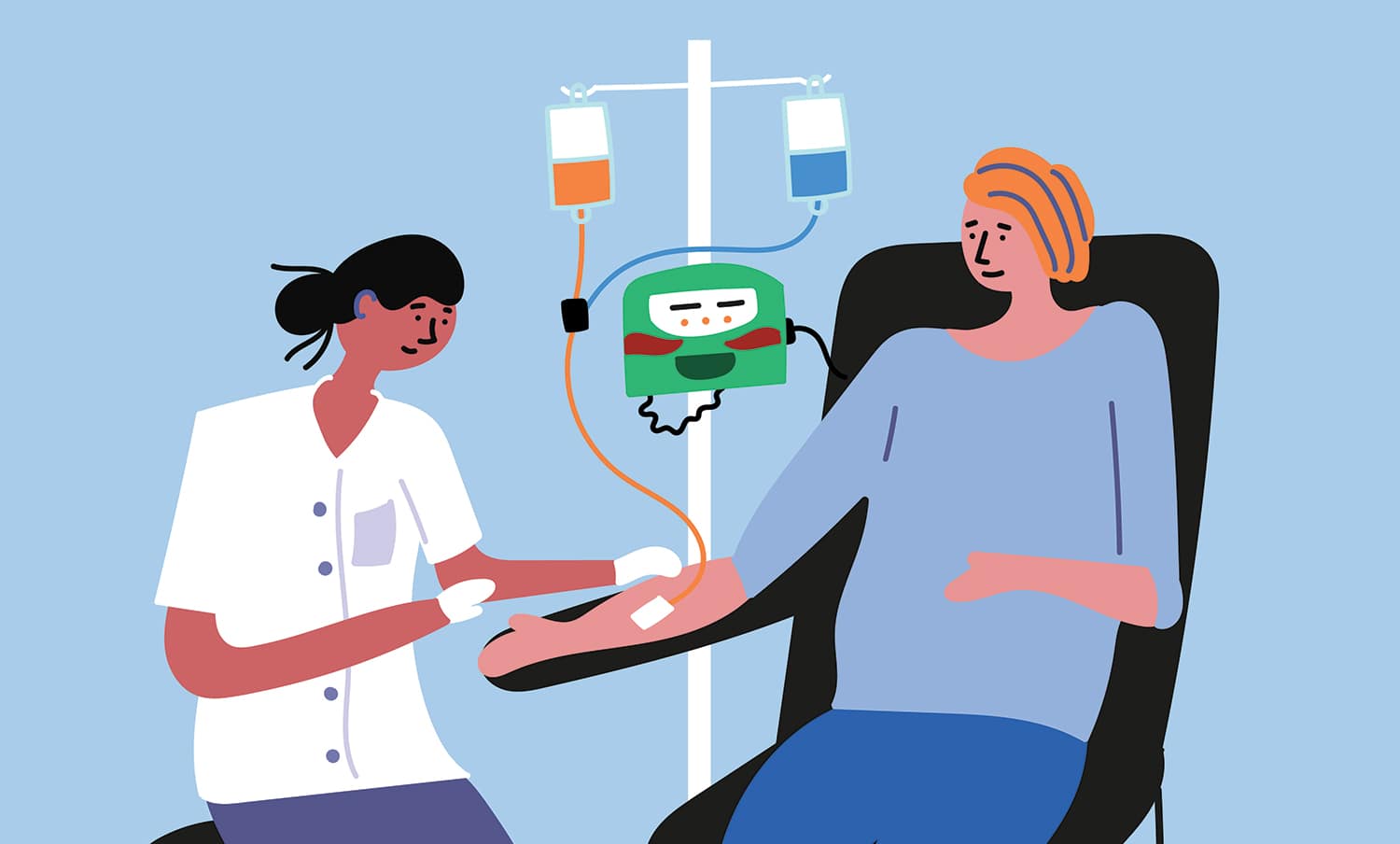MANY BREAST CANCER PATIENTS are treated with chemotherapy after surgery. The dose they receive is determined by their height and weight. If a patient experiences side effects from the treatment, the chemotherapy dose may need to be reduced. A recent study investigated the effect dose reductions can have on survival.
The study, published Aug. 1, 2019, in the Journal of the National Comprehensive Cancer Network, included 1,302 women with early-stage HER2-negative breast cancer who were treated with a chemotherapy regimen called FEC-D in Alberta, Canada, between 2007 and 2014. The FEC-D regimen consists of three cycles of the chemotherapy drugs 5-fluorouracil, Ellence (epirubicin), and Cytoxan (cyclophosphamide) followed by three cycles of Taxotere (docetaxel).
After five years, 86% of the 1,100 patients who received 85% or more of the recommended treatment showed no evidence of disease, compared to 79% of the 202 patients who received less than 85% of the recommended treatment. But a closer look showed the timing of the dose reduction was also a factor. Among patients who received only lower doses in the first three cycles, 79% were alive and had not had a cancer recurrence within five years, compared to 87% of the patients who received full doses in the first three cycles and then reduced doses during the last three cycles.
Today, a treatment regimen called AC-T, which consists of four cycles of Adriamycin (doxorubicin) and Cytoxan followed by four cycles of Taxol (paclitaxel), is more likely to be used than FEC-D. Tufia Haddad, a medical oncologist at the Mayo Clinic in Rochester, Minnesota, who was not involved with the study, says the findings are still relevant. “I would expect to see the same findings with AC-T, when the Taxol is given after the AC,” she says. “These findings are reassuring for patients who receive all of their AC and may benefit from reduced Taxol doses near the end of their treatment plan.”
For many chemotherapy drugs, dose reductions are needed if a patient’s white blood cell count drops, which increases risk for infections. Patients are often given growth factors to stimulate blood cell production to prevent this from occurring. Dose reductions for patients receiving Taxol can occur if patients develop neuropathy, a nerve problem that can cause numbness, pain, tingling and muscle weakness.
“We seldom need to reduce doses today, but being proactive is better than being reactive,” says Ingrid Mayer, a medical oncologist at the Vanderbilt-Ingram Cancer Center in Nashville, Tennessee, who was not involved with the study. These results “suggest that it may be OK to reduce doses in the later cycles to help patients at risk of developing chronic neuropathy, such as those with diabetes, but we need to balance the risks and benefits.”
Cancer Today magazine is free to cancer patients, survivors and caregivers who live in the U.S. Subscribe here to receive four issues per year.





